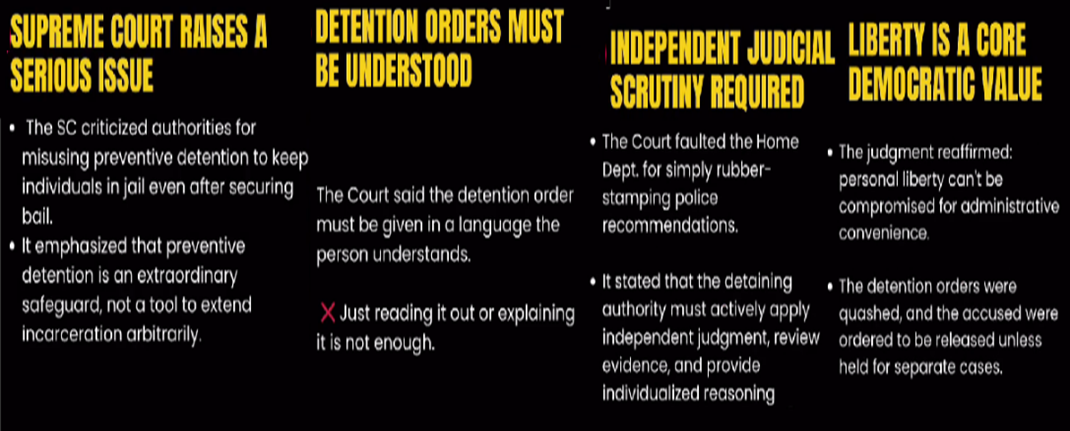PREVIOUS
Dhanya M Vs State of Kerala & Others
June 20 , 2025
17 hrs 0 min
50
0
- The Supreme Court has held that the extraordinary measure of the preventive detention must not be used as a substitute for criminal prosecution or to bypass orders of bail.
- The judgment by SC underscored the difference between 'public order' and 'law and order', citing SK. Nazneen v. State of Telangana (2023) and Nenavath Bujji Vs State of Telangana (2024).
- The SC set aside the preventive detention under the Kerala Anti-Social Activities (Prevention) Act, 2007.
- Other Key Supreme Court Judgments are
- Rekha v. State of Tamil Nadu (2011),
- Vijay Narayan Singh v State of Bihar (1984),
- Icchu Devi v Union of India (1980) and
- A.K. Gopalan v. State of Madras (1950)
- Preventive detention is recognised in the Constitution under Article 22(3)(b).
- The power of preventive detention is an exception to Article 21 and, therefore, must be applied as such, as an exception to the main rule and only in rare cases.
- The provision for preventive detention is an extraordinary power in the hands of the State that must be used sparingly.
- It curtails the liberty of an individual in anticipation of the commission of further offence(s), and therefore, must not be used in the ordinary course of nature.
- When a person is enlarged on bail by a competent criminal court, a great caution should be exercised in scrutinising the validity of an order of preventive detention which is based on the very same charge which is to be tried by the criminal court.

Leave a Reply
Your Comment is awaiting moderation.


